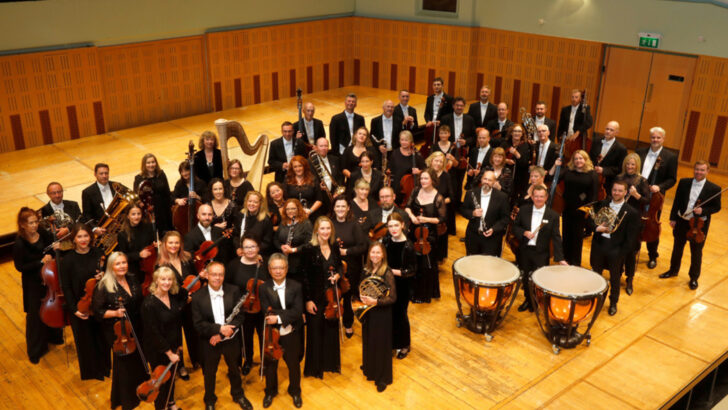Following a number of seasonal events, the NSO came back on track with its 2024/25 series at the National Concert Hall in a Russian programme featuring South American conductor Diego Matheuz and French pianist Lise de la Salle. With Rakhmaninov’s ever popular 2nd Piano Concerto and Shostakovich’s 7th Symphony (Leningrad), I found the relationship between artists and music-making deeply satisfying.
Mlle de la Salle provided a wealth of tone colouring in her excellently polished performance in the concerto and seemed totally at ease with Maestro Matheuz with whom she was working for the first time. There was a particular rapport between them in the central Adagio while their grandiose finale had full-blooded panache.
The current year marks the 50th anniversary of the death of Shostakovich and the NSO chose his 7th Symphony to honour the occasion. The piece dates from the early 1940s when the composer was still living in his native Leningrad and before he and many other artists and intellectuals were moved to the Crimea then considered safe from bombardment.
At times the music reflects the bleakness of its period, but it still manages to end with a sense of ‘stentorian defiance’ as the programme note writer (Michael Quinn) reminded us. The keening lament of the third movement Adagio is symbolic of ‘the violence of Stalin’s purges and Hitler’s murderous enmity’.
The main work in tomorrow (Friday 31st January) evening’s NSO programme at the National Concert Hall is Rakhmaninov’s magnificent 2nd Symphony, written mainly in Dresden where the Rakhmaninov family were then living.
The composer’s First Symphony had not been sympathetically received at its 1897 premiere leaving Rakhmaninov verging on a nervous breakdown. While a noted psychiatrist Dr Nikolai Dahl came to his assistance, it was over ten years before the composer presented his second symphony to the St Petersburg public in 1908.
The lengthy work has a slow introduction during which its principal ideas show themselves in one form or another. The second movement is a relatively short scherzo that offers suitable contrast to what has preceded it while the slow movement shows the great romantic almost overstating his romanticism. But never mind, the music is wonderful. Rakhmaninov’s finale is an orchestral tour de force that brings the symphony to a brilliant conclusion.
There will not be a concerto in tomorrow’s programme its place is being filled by a song cycle – The Celestial Stranger – by Irish-born Welsh-domiciled Stephen McNeff. The composer has kindly supplied the following introduction.
The Celestial Stranger was inspired by the 1997 rediscovery of texts by the 17th century cleric and mystic Thomas Traherne in the library of Lambeth Palace in London. In these, Traherne imagines a person from another world discovering Earth and being enchanted by its beauty. The cycle also includes settings of Walt Whitman, Dylan Thomas and Hawaiian Queen Liliuokalani. (1838-1917).
Colombian-American conductor Lina González-Granados, noted for her spectacular interpretations of the symphonic and operatic repertoires and her dedication to highlighting new and unknown works by Latin American composers, will direct The Celestial Stranger with tenor Gavan Ring as soloist.


 National Symphony Orchestra
National Symphony Orchestra 